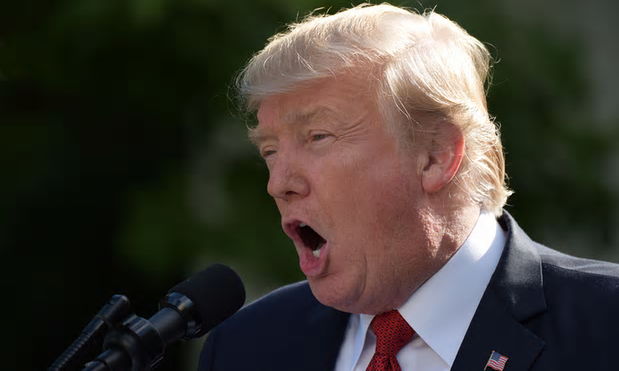
With the results of the 2024 U.S. presidential elections now official, Pakistan has extended its heartfelt congratulations to Donald Trump on being re-elected as the 47th President of the United States. As Pakistan embarks on a journey to stabilize and grow its economy, address internal challenges, and contribute to regional peace, there is a palpable sense of optimism surrounding the direction that US-Pakistan relations may take under Trump’s leadership.
The United States remains one of the most influential powers in global geopolitics, economics, and security, and for Pakistan, maintaining a stable and positive relationship with Washington is crucial. The re-election of Donald Trump signals a continued focus on his distinct approach to foreign policy—one that has historically aimed at reducing U.S. military entanglements abroad while seeking strategic partnerships that prioritize mutual interests.
For Pakistan, this approach is particularly significant. Under Trump’s first term, the U.S. saw notable engagement with Pakistan in the fight against terrorism, as well as Pakistan’s key role in facilitating the U.S. military’s operations in Afghanistan. Despite some tensions during Trump’s first term, the strategic collaboration remained vital, especially with regard to regional stability. Now, with Trump’s second term, Pakistan is hopeful that this collaboration will deepen, focused on ensuring lasting peace and economic recovery in South Asia, including Afghanistan.
One of the key aspects of Donald Trump’s foreign policy that resonates deeply with Pakistan—and many Muslim-majority countries—is his emphasis on reducing U.S. military involvement in overseas conflicts. Trump’s “America First” doctrine has consistently advocated for less interventionism and a rethinking of America’s role in the Middle East and South Asia, particularly after the costly and protracted wars in Iraq and Afghanistan.
For Pakistan, which shares borders with Afghanistan and has long been affected by the fallout of the U.S.’s military interventions in the region, Trump’s anti-war stance offers a glimmer of hope. The Pakistani public, along with many across the Muslim world, has been particularly critical of past U.S. military interventions, and Trump’s more restrained approach aligns with Pakistan’s desire for peace and stability in the region. Trump’s commitment to winding down military conflicts, promoting peace negotiations, and engaging in diplomacy rather than military escalation could prove pivotal in reducing tensions, both in Afghanistan and across the broader region.
Moreover, Trump’s more cautious foreign policy could lead to a reduction in the civilian toll of wars in Muslim-majority countries, offering a much-needed reprieve for communities affected by prolonged conflict. This shift toward diplomacy is seen as a positive development by Pakistanis who hope for a future where their country is no longer caught in the crossfire of global power struggles.
Economic Collaboration: Strengthening Ties for a Brighter Future
The U.S. plays a critical role in global trade, investment, and economic policy. Under Trump’s leadership, there is an opportunity for Pakistan to tap into greater economic collaboration, particularly in sectors such as agriculture, energy, and technology. Trump’s administration has been keen on fostering trade deals that prioritize mutual benefits, and Pakistan hopes to leverage this to attract much-needed foreign investment.
Pakistan’s young, dynamic population presents a promising opportunity for U.S. businesses, while the country’s geographic location as a gateway between Central Asia and the Middle East provides strategic value for U.S. companies looking to expand their footprint in the region. By deepening trade and investment ties, both countries can stimulate job creation, foster economic development, and strengthen regional integration.
Environmental Stewardship and Climate Change Collaboration
Climate change is a growing challenge that affects Pakistan disproportionately, with its vulnerable infrastructure and large agricultural base susceptible to extreme weather events. The Trump administration, despite its controversial stance on some global environmental issues, has taken steps to address climate change, including investment in green technologies. Pakistan hopes to see increased cooperation on climate action, particularly through investments in renewable energy, water conservation, and disaster preparedness.
By working together, both nations can become leaders in developing solutions to mitigate the impacts of climate change while ensuring sustainable development. This collaboration could play a transformative role, not only in addressing environmental concerns but in fostering new industries and creating jobs, particularly in the renewable energy sector.
Moving Beyond Past Tensions: A Vision for a Stronger Future
Despite the complexities of the past, Pakistan is determined to move forward and build a resilient future. The country is working to resolve its internal challenges, including political instability and economic recovery, and there is hope that the U.S. will be a reliable partner in these efforts. With Trump’s second term, Pakistan sees an opportunity to work more closely with Washington to secure not just military and strategic cooperation, but economic and developmental support as well.
In a world increasingly defined by multipolarity, Pakistan seeks to reaffirm its role as a key player in global diplomacy. Trump’s pragmatic approach to foreign policy, one that emphasizes strategic alliances while de-escalating conflict, offers a hopeful framework for Pakistan to work alongside the U.S. on pressing global issues such as counterterrorism, regional peace, and economic growth.
The resilience of the Pakistani people is well-documented, and despite the challenges that lie ahead, there is a strong sense of optimism in the air. The leadership under Prime Minister Shehbaz Sharif is committed to implementing necessary reforms to stabilize the economy, attract foreign investment, and bolster Pakistan’s global standing. There is confidence that, with the right international support—including that of the U.S.—Pakistan can emerge as a stronger, more prosperous nation.
As President Trump begins his second term, both nations stand at a crossroads, ready to turn a new page in their relationship. For Pakistan, the potential for a future built on peace, shared prosperity, and strategic cooperation with the U.S. is not just a hopeful vision—it is a tangible goal that, with Trump’s leadership, could become reality. The stage is set for a fresh start in U.S.-Pakistan relations, one that reflects mutual respect, common interests, and a commitment to building a better future for both nations and the broader global community.

